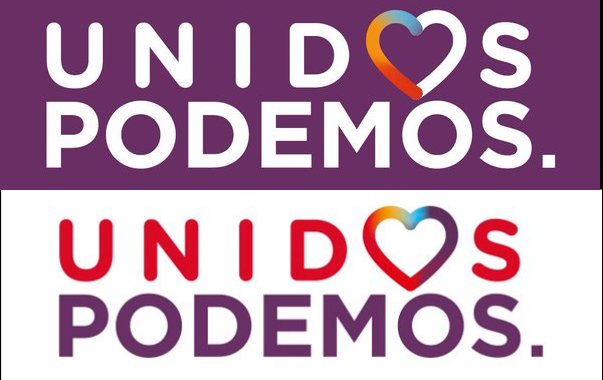Upstart Parties Crash the Ball in Spain

For the past quarter of a century there have been few watershed moments in Spanish political history. Like a well-choreographed pas de deux, the center-left Socialist Workers Party (PSOE) and right-wing Popular Party (PP) have taken turns governing the country.
But the 2015 election changed all that. Upstart parties on the right and left crashed the ball, punished the two major parties, and forced another round of voting on June 26 that could be a turning point in a growing campaign to roll back austerity policies that have spread poverty and unemployment throughout the continent.
Last December’s vote saw the ruling PP drop 63 seats and lose its majority. But voters chastised the Socialists as well, with the party losing 20 seats. Many of the seats that formerly went to the two major parties shifted to the left-wing Podemos Party and, to a lesser degree, the rightist Ciudadanos Party. In the current parliament, the PP controls 123 seats, the Socialists 90, Podemos 69, and Ciudadanos 40. Regional parties of Basques, Catalans and Canary Island independents hold 28 seats. The parliament has 350 seats and a ruling majority is 176.
The new election was forced when none of the parties could form a working majority. The PP and Ciudadanos are on the same page politically, but together fall short of a majority. The Socialists, Podemos and the regional parties — most of which are leftist to one extent or another — could have formed a government, but the Socialist Party refuses to have anything to do with Catalan separatists.
While polls indicate that Spaniards are likely to vote pretty much the same way they did in December, a new kid on the block has altered the electoral terrain and raised the pressure on the center-left Socialists to make a choice: follow the lead of Portugal, where the Socialist Party formed a united front with the Left Bloc and the Communist/Green alliance, or imitate the Social Democrats in Germany and join a “grand coalition” and make common cause with the right?
The “new kid” is “Unidos Podemos” (“United We Can”), a coalition of Podemos and the United Left (UL). No one expects the new alliance to win a majority, but most analysts predict, that under Spain’s quirky election system the coalition could increase its representation by 25 percent, or somewhere between 15 to 20 seats. That would vault the new formation past the PSOE, making United Podemos (UP) the second largest bloc in the parliament. The PP is still number one and on track to slightly increase the 29 percent they received in the last election.
Spain’s election geography is heavily weighted toward rural areas, where the PP and Socialist Party are strong. While it takes 128,000 votes to elect someone in Madrid, it only takes 38,000 in some areas of the countryside. The rules also favor regional depth over broad support. In December, the UL won almost a million votes but only got two representatives. Other parties averaged one seat for every 60,000 votes.

United Podemos has internal tensions, but both parties have put these aside for the moment. For instance, Podemos supports continued membership in NATO, while United Left opposes the military alliance. The UL is also opposed to the current structure of the European Union and calls for a “refounding” of the organization.
What both agree on is ending Spain’s punishing austerity regime and confronting the country’s staggering unemployment. The national jobless rate is 21 percent, with a catastrophic 45.5 percent for youth 25 and under. The education system is in a state of collapse, and there is a national housing crisis. In the face of those conditions, the UP has decided to shelve disagreements over NATO and the EU and make common cause.
This is almost exactly what the left did in Portugal, where disagreements on NATO and the EU were sidelined in favor of freezing privatizations, rolling back tax increases, increasing the minimum wage and augmenting funding for education and medical care. There is no question that differences will eventually surface, but the Portuguese left has decided that when the house is burning down saving the inhabitants takes precedence. Whether the Spanish Socialist Party will take that step is an open question.
In some ways the divisions of the left in Spain are narrower than they are in the Portuguese alliance: part of the UP — specifically Podemos — backs NATO membership and the EU. But the PSOE’s opposition to Catalan independence is a major roadblock to an alliance with the UP. Podemos also believes Catalonia should remain part of Spain, but it supports the right of the Catalans to hold a referendum on the issue.
The Socialist Party’s hostility to Catalan independence allies it with the PP and Ciudadanos. The latter was formed to oppose Catalan independence, and the PP has led a mean-spiritedcampaign against Barcelona. When Catalans banned bull fighting, Madrid made bull fighting a “national cultural heritage” to thwart the ban. When Catalans flew their nationalist “Estelada” flag at the Copa Del Rey soccer match finals in Madrid, the government tried to block it. A court stopped the authorities from banning the flag, and Barcelona defeated Madrid in the match.
PP leader and acting Prime Minister, Mariano Rajoy, is pressing the Socialists to join a grand coalition that, so far, the latter has resisted. But the PSOE is deeply split. Some in the Party would rather bed down with the right than break bread with Podemos United. Others are afraid that, if the Socialist Party enters a grand alliance with the Popular Party, the Socialists will end up suffering the consequences. Center-left parties that join with center-right parties tend to do badly come election time.
The Greek Socialist Party was decimated by the left-wing Syriza Party after the former went into a grand coalition with the right. The Liberal Party’s alliance with the Conservative Party in England turned out to be a disaster. The Liberal Party barely exists today. And the German Social Democrat’s grand coalition with Chancellor Angela Merkel’s Christian Democratic Union has seen the once mighty Socialists slip below 20 percent in the polls. In Spain the mantel of “the left” would clearly shift to the UP alliance, something that many in the Socialist Party deeply fear.
There are profound differences among the European left, making unity difficult. The Socialist parties in Portugal and Spain, for instance, support paying off their countries debts to European banks and the International Monetary Fund (IMF). The Portuguese Socialist Party’s alliance partners, as well as the Spanish United Left, think the debt is unpayable and, in any case, unfair because most of the debt is the result of the 2008 economic crisis brought on by the irresponsible speculation of private banks. Speculators may have lost the money, but the taxpayers are picking up the tab.
There is a potential path out of the current situation, but it will have to overcome powerful interests and a deeply flawed economic system.
Those “interests” are the debt holders, ranging from governments to the European Central bank and the IMF.
The flaw is built into the eurozone, which is made up of the 19 countries in the 28-member European Union that use the common currency, the euro. As economist Thomas Piketty puts it, the eurozone has “a single currency with 19 different public debts, 19 interests rates upon which the financial markets are completely free to speculate, 19 corporate tax rates in unbridled competition with one another, without a common social safety net or shared educational standard—this cannot possibly work, and never will.”
Piketty argues the eurozone’s rigidity on debt and its strategy for solving it — austerity and yet more austerity — has “throttled” a recovery, particularly in Greece, Spain, Portugal, and Ireland. Even where countries economies are finally growing — Spain and Ireland — their debts are actually higher than when they instituted austerity regimes. And the “growth” is not due to the EU’s economic strategy, but rather to cheap oil and the declining value of the euro.
Piketty proposes a conference on debt, similar to the one that saved postwar Germany. Syriza has long called for such a gathering. Such a conference could cut debt burdens, lower interest rates and spread out repayments.
However, the eurozone would also have to be democratized. The current European parliament includes non-eurozone members and is largely powerless. Decisions are largely made by the unelected Troika — the IMF, the European Central Bank, and the European Commission. One thing that could be done immediately would be to institute a common corporate tax rate, which could be used to finance infrastructure improvements and education.
Germany is unlikely to support such an approach, but Germany only represents 25 percent of the EU’s population and GDP, while France, Italy and Spain combined account for 50 percent. Add in Ireland, Portugal and Greece, and Germany and its allies are a distinct minority.
Italy is openly advocating debt reductions and loosening of the eurozone’s rules, and France has already raised the issue of a more democratic and transparent EU political structure along the lines of what Piketty is proposing.
Can it be done? It won’t be easy, but Germany is increasingly isolated, and countries in the southern tier of the eurozone are desperate for relief from the endless rounds of austerity. They are also no longer convinced that such a strategy will lower their debt burdens and stimulate their economies. In fact, most the debt is unpayable no matter how much austerity is applied.
There are some wild cards in the upcoming election. Both the PP and PSOE have been tarred with the corruption bush, and two former Socialist governors of Andalusia have just been charged with illegal payments to supporters. Turnout will likely be lower than in the December election, but the left’s effective grassroots organizations may offset that.
The Spanish elections arrive at a critical time for the European Union, and a Madrid government that resists the increasingly discredited economic strategy of the troika could shift the balance in the direction imagined by Piketty.
That, however, will depend on whether the Socialist Party decides to join with the left or go into a grand coalition with the right.
A failure by the left to unite will open the door for Europe’s resurgent far right, whose xenophobia and racism have gained ground all over the continent. The only way to effectively counter the far right is to democratize the European Union and pursue economic policies that will provide jobs and raise living standards. Only the left can deliver such a program.
[For more of Conn Hallinan’s essays visit Dispatches From the Edge. Meanwhile, his novels about the ancient Romans can be found at The Middle Empire Series.]
Thanks to the author for sending this to Portside.
Whether or not they follow politics, it’s fair to assume most people don’t actually read electoral programs. Podemos, Spain’s growing leftwing party, which got nearly 21% of the votes in last year’s elections, doesn’t think that’s good, so it adopted an unusual marketing approach to tackle that problem: it printed the program as an Ikea catalogue (pdf, link in Spanish).
“If we want to pursue different objectives we need to take different measures,” said Carolina Bescansa, who openly acknowledged the Ikea inspiration. at the program’s presentation, El Mundo reports. She said the objective is that the electoral program becomes the “most read in the history of democracy.”
Despite the innovative format, the program doesn’t introduce much differences from what Podemos had presented in December, including proposals of €60 billion ($68 billion) in public spending, increased taxes on higher income for incomes above €60,000, a larger set products (food, medicines) to have reduced VAT at 4% and 10%, and VAT at 25% for luxury goods.

